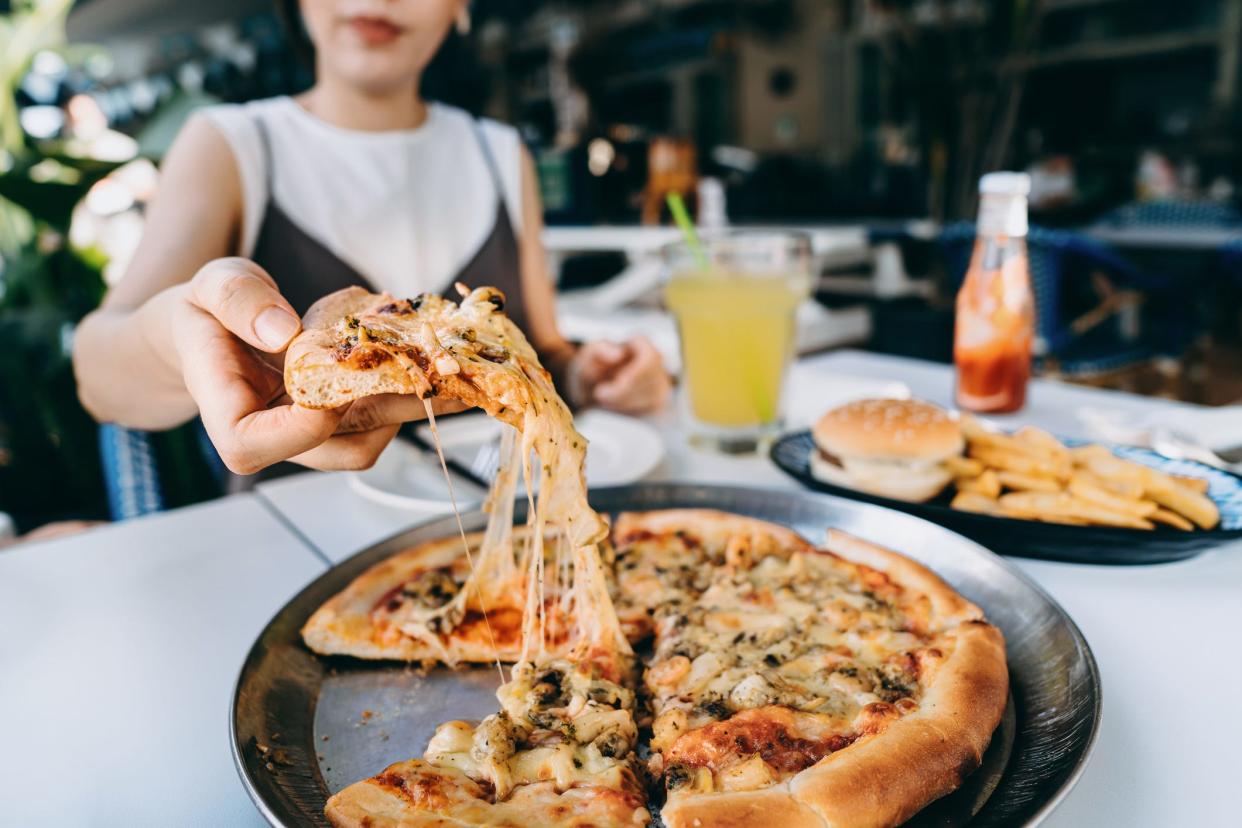A dietitian explains how a 'diet break' can make it easier to lose weight and keep it off

A diet break involves eating more calories and fun foods to help your brain and body reset.
It can help you lose weight long-term by boosting your motivation and metabolism, a dietitian said.
Regular diet breaks can help you avoid getting into cycles of extreme restriction or indulgence.
If you're struggling to stay on track while losing weight, it might be time to ditch your diet, at least for a few days, according to a dietitian.
Taking a diet break can help you and prevent some of the side effects of cutting calories, said Brittany Werner, a registered dietitian for the nutrition coaching company Working Against Gravity.
Messaging from the $70 billion diet industry makes it sound like you're a failure if you slip up on so-called "clean eating," but research suggests it's not because of a lack of willpower. Restricting too much for too long can backfire, causing a vicious cycle of yo-yo dieting and weight rebounding, studies show.
Instead, a few days or weeks of eating more freely can help you mentally reset and make you more likely to lose weight long-term, Werner told Business Insider.
"Nutrition has seasons, just like everything else in life," she said. "It's not realistic to think you'll be in a weight loss or fat loss phase year round. It's mentally not a positive thing, and your body needs a break."
Keep your metabolism healthy and your hunger in check without risking your hard-earned progress by doing diet breaks the right way.
What is a diet break?
A diet break means easing up on your current nutrition routine in the short term, giving yourself more flexibility in what you eat, Werner said.
Pausing your diet is important because losing weight can be an uncomfortable process, even if you're doing everything right. Being in a calorie deficit —eating less than you burn — may cause you to feel hungry and tired, and you likely have to be more mindful about your food choices.
"Even if you're slightly restricting food, it can be hard," Werner said.
She said a diet break can help in two major ways.
First, it gives you a psychological boost of enjoying more foods and not having to think about what you're eating as much, which can help you stay motivated to stay on track when you return.
Second, eating more for a while can also help make sure you retain muscle mass and a faster metabolism, according to Werner.
"Our metabolism slows down as we become smaller, we don't need to burn as many calories," she said.
Losing weight too quickly, or losing muscle, can make it harder to lose or maintain your weight over time since you won't use as much energy fueling your body.
"Drastic calorie reduction does not work long term," Werner said.
When should you take a diet break?
The right timing for a diet break can vary from person to person, according to Werner.
A general guideline is to consider a diet break every few months, around 12 to 16 weeks. If you haven't made it that far into your diet and you're already hungry or grumpy, though, a diet break may not be the answer. Fatigue, moodiness, and loss of sleep can be signs you're cutting calories too and need to eat more, even if you're trying to lose weight, Werner said.
You can also use diet breaks to avoid derailing your routine when you have an upcoming event — for instance, taking a planned diet break on vacation can give you room to enjoy yourself without overdoing it.
How you can take a diet break without losing progress
The key to a successful diet break is allowing yourself the freedom to indulge without going to extremes, according to Werner.
"Allow yourself to eat a few foods you haven't in a while, and increase calories by a few hundred a day. It doesn't mean it's a free-for-all," she said.
A moderation approach to a diet break can help prevent cycles of overdoing it followed by excessive restriction which often stall weight loss attempts.
Werner also recommends keeping a diet break to no more than two weeks since any longer can start to erode the sense of habit and healthy routines you've built up.
"If you get away from systems and processes, it's hard to come back," she said.
Just like a good vacation, think of your diet break as an opportunity to kick back and relax in a way that helps you return to your regular schedule with renewed energy and focus.
"It can really help you break through to hit the next few months," Werner said.
Read the original article on Business Insider


